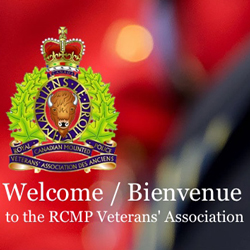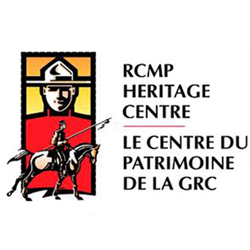RCMP Takeover Surrey
On the 1st of May 1951, the RCMP officially took over policing from the Surrey Municipal Police Department.
The RCMP’s pattern of taking over other police agencies dates back to 1920 when the federal government changed the name of the Force from the Royal North West Mounted Police (RNWMP) to the Royal Canadian Mounted Police (RCMP). With this name change, the federal government created the RCMP as the country’s national police force.
Shortly thereafter, the federal government felt that there seemed to be an overlapping of responsibility and a lack of cooperation between the independent police bodies and the RCMP. In addition, several provincial governments raised concerns about financially maintaining their own provincial police departments. Since criminal activity was not isolated to a single community, the federal government called for a more unified and economical system of policing.
The federal government’s response was to develop a policing “subsidy model.” Under this model, the federal government would cover a portion of the provincial policing costs provided that the RCMP took over all policing operations. In the late 1920s, the Saskatchewan government was concerned over their policing costs which at the time was $500,000 annually. The federal government offered to take over the policing in Saskatchewan and only charge $200,000 for the same level of policing.
Based on this “subsidy model,” many provincial governments turned over their provincial policing operations to the RCMP:
- Saskatchewan Provincial Police in 1928;
- Alberta Provincial Police in 1932;
- Manitoba Provincial Police in 1932;
- New Brunswick Provincial Police in 1932;
- Nova Scotia Provincial Police in 1932;
- Prince Edward Island in 1932; and
- Newfoundland Rangers in 1950.
In 1950, the province of British Columbia (BC) dissolved the BC Provincial Police (BCPP) and their policing responsibilities were taken over by the RCMP. As part of this new expanded role, the RCMP absorbed 492 of the 520 BCPP members. At the time, the BCPP were policing most of the small and medium communities throughout British Columbia.
The same “subsidy model” was offered to the Surrey Council. In previous years, Surrey Council had become increasingly concerned about their escalating policing costs. To decide on whether to switch to the RCMP or remain with their own police force, Surrey Council decided to hold a plebiscite in 1950. The result of the plebiscite was 2,973 to 2,330 in favor of the RCMP take-over. After a heated debate in December that year, Council decided to accept the RCMP’s offer to take over the Surrey Police’s duties. As part of this arrangement, the RCMP tried to absorb as many of Surrey’s police officers as possible.
As promised, the RCMP conducted discreet interviews with many of the Surrey Police officers. Only two such individuals expressed a desire to become members: Chief Constable Jim Craig (RCMP Reg. #17495) and Constable Paul Starek (RCMP Reg. #17496).
According to Paul Starek, “I was interviewed by Corporal William Turner (Reg. # 12495). He asked me what I thought about the RCMP and the possibility of joining the Force. I told him that it would be great to join the RCMP as they have a great reputation and provide extensive training.
After being interviewed by Corporal Turner, I went back to the Surrey Police Department and told Chief Constable Jim Craig about my interview. He told me not to listen to the RCMP as they make shallow promises. It was not until much later that I discovered that Jim Craig had also been interviewed and he too agreed to become an RCMP member in Cloverdale.”
Two days after his interview with Corporal Turner, Paul Starek received a telex from the RCMP Headquarters in Ottawa. This telex offered him a position in the RCMP as a Special Constable with a pay rate of $210 per month. According to Paul Starek, “I accepted the offer as it was a $60 pay increase over what I was being paid by the Municipality of Surrey.”
Two days prior to the RCMP takeover, 6 of the 8 Surrey Municipal Police Officers quit leaving only the Chief Constable and Paul Starek to police Surrey. Faced with this dilemma, Paul went to Jim Craig and asked how they were to manage until the RCMP take-over. According to Paul Starek, Jim Craig stated “I’m the Chief Constable and I work from 8 AM to 4 PM. Everything that occurs outside these hours is your responsibility.” Consequently, Paul Starek was obligated to work extended hours to keep Surrey safe.
In 1950, the Surrey Municipal Police Department had their office in what is now the old City Hall in Cloverdale. Their office was on the main floor at the rear of the building with a single cell for prisoners in the basement. Shortly before midnight on the 30th of April 1951, Paul Starek was seated in the Surrey Municipal Police Office. Suddenly, he heard the sound of heavy footsteps and the jiggling of spurs coming up the front steps and into the building. Upon investigating the sounds, he discovered Corporal William Turner who was accompanied by one ex-BC Provincial Police Officer and fourteen extremely young looking members wearing their typical RCMP brown serge with high brown boots and blue breeches.
Corporal Turner introduced all the members to Paul Starek. Paul then stated “well, now that you guys are here, I can go home.” Apparently Corporal Turner said “‘no you can’t… you have to tell us how to police Surrey. “ It was quickly discovered that none of these members had worked in a municipal policing environment.
Starek suggested to Corporal Turner that each shift should have four police cars working in Surrey: two in Whalley; one in Newton; and one for both Cloverdale and White Rock. Each young RCMP member was given directions on how to get to each of these areas.
At the time, Paul Starek had been in the Surrey Police Department for only 9 months and had received no official police training. To assist with the first night, he sat by the radio beside Constable Charlie Thomas (Reg. #15577) who was assigned as the radio operator. When telephone calls were received for police services, Paul Starek would have Charlie Thomas radio the patrolling members on how to get to a specific location. In addition, Paul Starek would provide suggestions on how certain investigations should be handled and who should be contacted.
According to Charlie Thomas, he gave the first two members working in Whalley directions on how to get there. “I told them to drive north to the Trans-Canada Highway (now known as Pacific Highway) then turn left on Trans-Canada Highway. Once they reached the traffic light at King George highway, they were to radio back that they had made it.” For the first few months in Surrey, the Whalley members used the intersection of King George Highway and Fraser Highway as their main geographical reference point.
Charlie Thomas outlined that on the first night of members working in Whalley they arrested their first impaired driver. Once arrested, the driver was driven back to Cloverdale and placed in the Cellblock. Then the members started writing up their impaired driving investigation.
At the end of their first shift, only three of the four police cars returned to the Cloverdale office. The fourth member got lost in south Surrey and couldn’t figure his way back to the office. Over the radio, Paul Starek suggested that the member should stop at the nearest farm house and ask for directions. Half an hour later, the missing member returned to the Cloverdale office with a dozen eggs which the farmer had given him.
A few weeks later, Paul Starek was assigned to one of the four patrol teams. Since he was hired on with the RCMP as a Special Constable, he accompanied other RCMP officers in their patrols of Surrey. In the early days with the RCMP, he was still wearing his Surrey Police uniform. This uniform was eventually replaced with a traditional RCMP uniform, but not before completing his 6 weeks of training at the RCMP Fairmount Barracks in Vancouver.
According to Charlie Thomas, “I learned how to do policing in Surrey. It was a fun place to work and the esprit de corps was outstanding amongst the members. Members would come to work 2 hours before their shift and stay 2 hours after shift to help out their fellow members on shift.”
According to Bill McCheyne (Reg. #15156), “in the early days of policing Surrey we didn’t have any maps. So we would ask Jim Craig who seemed to know where everyone lived. One of his typical directions was to leave Cloverdale and drive 3 miles south on Pacific Highway and the house you want is the brown house on the right.”
Bill further stated “the reason for this concentration of crime in the Whalley area was the fact that the BC Penitentiary was across the Fraser River in New Westminster. The convict’s families would move from all over the country to be close to their relative in the BC Pen. When the fellow got out of jail he would continue his criminal activities in the Whalley area.”
Pat King (Reg. #15701) recalls using one of Jim Craig’s hand drawn maps to navigate around the east side of Surrey between 72 Avenue and Bridgeview. He stated “I remember stopping on Scott Road near Kennedy Heights to get my bearings. When I happened to look up – I noticed that some people were standing in a restaurant clapping at me. I enquired what the problem was – they told me that I was one of the first policemen they had seen in years. Apparently, the Delta Police members rarely left Ladner. It was my impression that the people of Surrey were quite happy to have the RCMP policing the municipality.”
According to Charlie Thomas, “the uniform did 90% of your work and was the symbol of authority. In those days, the citizens of Surrey had a very high respect for the RCMP.” Charlie further stated “it was a matter of keeping the peace. Most of our calls were for accidents, domestic disputes, suicides and safe cracking. Drugs weren’t a problem in those days.”
As outlined by Bill McConnell (Reg. #15197), “members couldn’t get married until they had 5 years of service and $1,500 in the bank. So for our early years in the Force, we seemed to work all the time. Even coming to work on our days off to get caught up with our paperwork. No secretaries in those days. We had to type up all our investigational reports. Occasionally, a member would take a day off and catch a ride to New Westminster. From there, we would hop on a street-car which would take us to downtown Vancouver. In those early days, only 2 members had their own car.”
Bill further stated “I enjoyed my time working in Surrey – there was always something going on and there was never a dull moment.”
Sixty years later, Surrey Detachment has increased from the original 18 members to the current establishment of: 651 members which includes Community Safety Officers and Integrated Units; 243 full-time City Support Staff members; and 100 part-time Support Staff. Detachment Commander holds the rank of an Assistant Commissioner and is supported by 11 Commissioned Officers.
When questioned about the quality of the RCMP policing in Surrey – Mayor Diane Watt “believes Surrey has gotten very good policing.”


 January 19, 2012
January 19, 2012 















